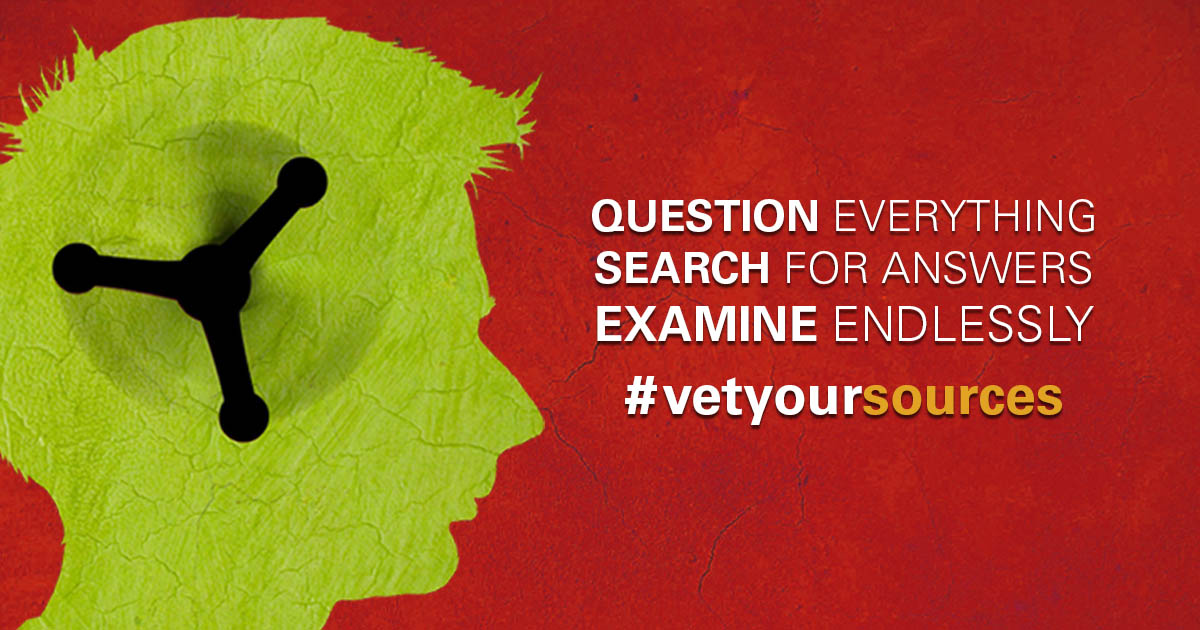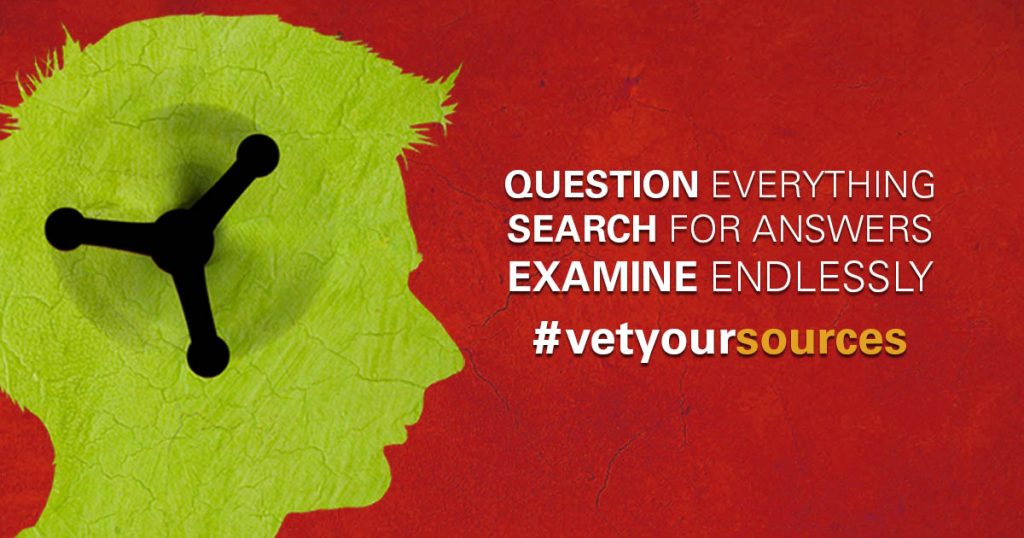To combat fakes and defend truth #VetYourSources effort continues

“Although this is important all the time, it’s an issue that’s been very much in the spotlight surrounding the 2016 presidential campaign and election,” she said. “We want to put useful advice out there while people are exceptionally interested in advancing their own skills in evaluating information.”
The campaign launched in spring semester 2017 on VCU Libraries’ Twitter and Facebook channels. It took a hiatus and returned in spring 2018 and will continue during fall and spring semesters to 2021.
The most visible element of the project is a social media campaign full of tips and ideas for evaluating sources. The initial Twitter blitz focused on things students should consider when evaluating information in their academic and everyday lives, including evaluation of news sources. Regular postings continued. “We try to be timely and keep an eye on new research or trends,” says Sue Robinson, director of communications and public relations.
The campaign focus is to empower people to think about the information they consume — to embrace a healthy skepticism, ask questions and seek answers.
“We know from working routinely with our students at VCU what a challenge it can be to feel confident in evaluating news, websites and academic texts,” Gariepy said. “The information landscape has become incredibly complex. Trying to take it all in is like drinking from a fire hose. Particularly when it comes to highly charged issues, it’s easy for all of us to let key signs of the quality and accuracy of information we’re consuming slip by.”
Gariepy cited a study by researchers at Stanford University, which found that young and otherwise digitally savvy students often have difficulty judging the credibility of online content. The results, she said, are a call to action for librarians to help hone students’ information literacy skills.
Librarians craft exercises for classes that help students understand the basics of evaluating content on the web and other formats. They also develop online resources designed to help students evaluate information. VCU Libraries’ online resources include a research guide for evaluating sources, including a section just for evaluating news, and a video on critically evaluating websites.
“This information campaign is really about sharing materials and knowledge VCU Libraries already provides to support our students and faculty inside and outside the classroom,” said Sue Robinson, director of communications and public relations for VCU Libraries. “The information we’re sharing is neutral, not partisan, political or biased. Knowledge management, information vetting, evaluation of sources, finding truths and checking facts are core skills of librarians. They are experts at this and we can trust them.”
A version of this article by Brian McNeill was published on the VCU News site.
Categories Community, Faculty/Staff, Leadership, Librarians at Work, News In an era of “fake news” and “alternative facts,”
In an era of “fake news” and “alternative facts,”